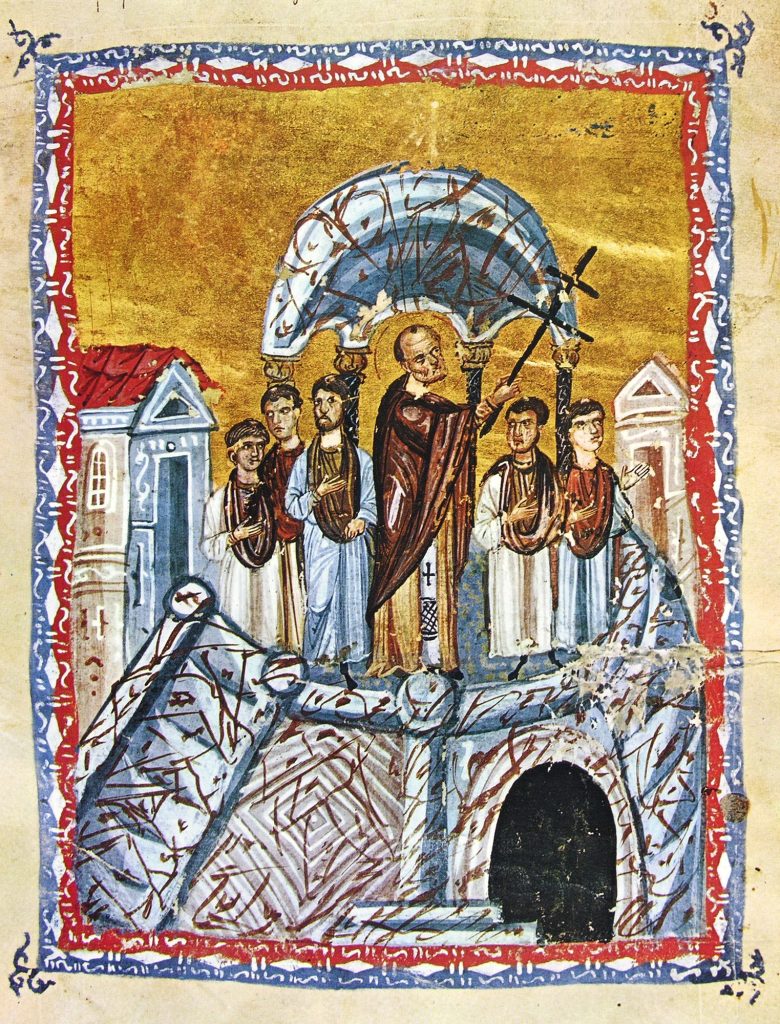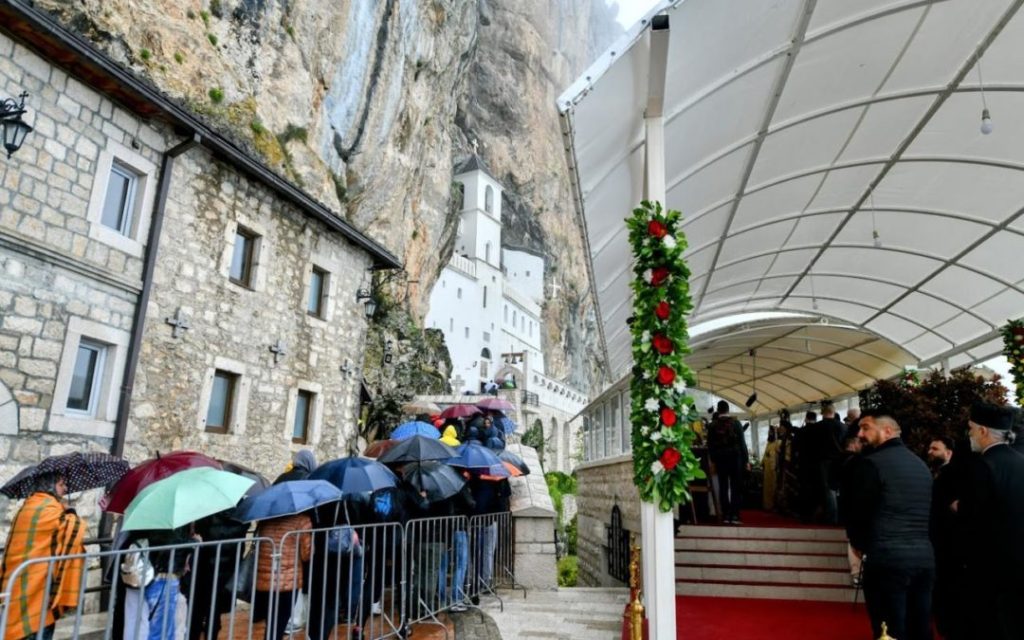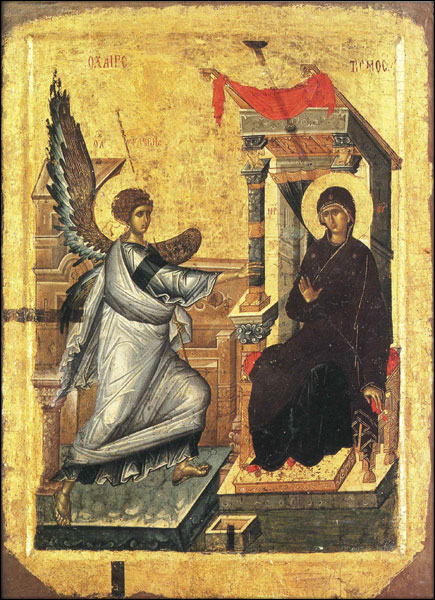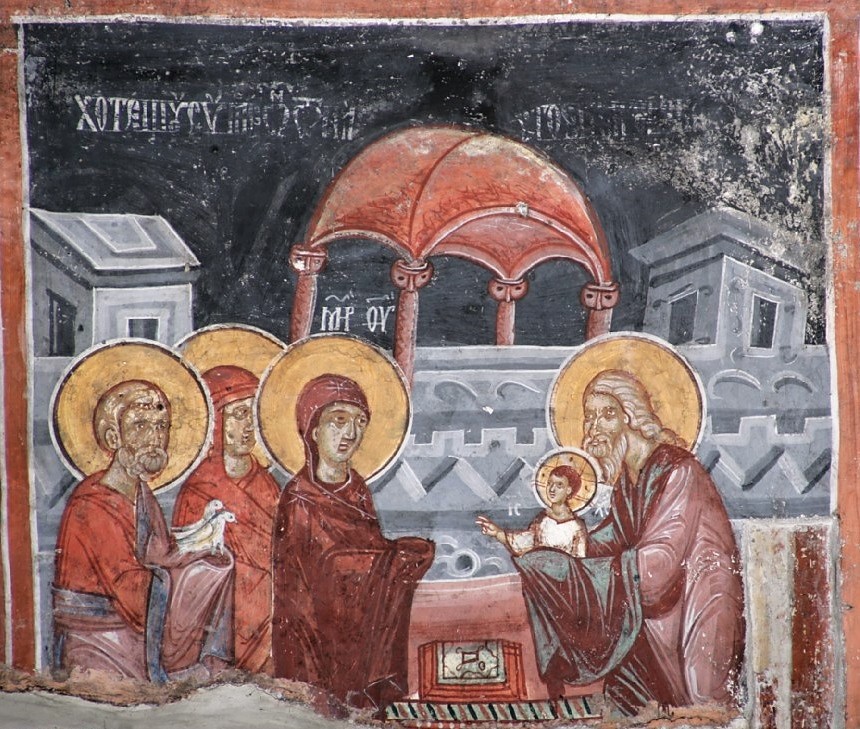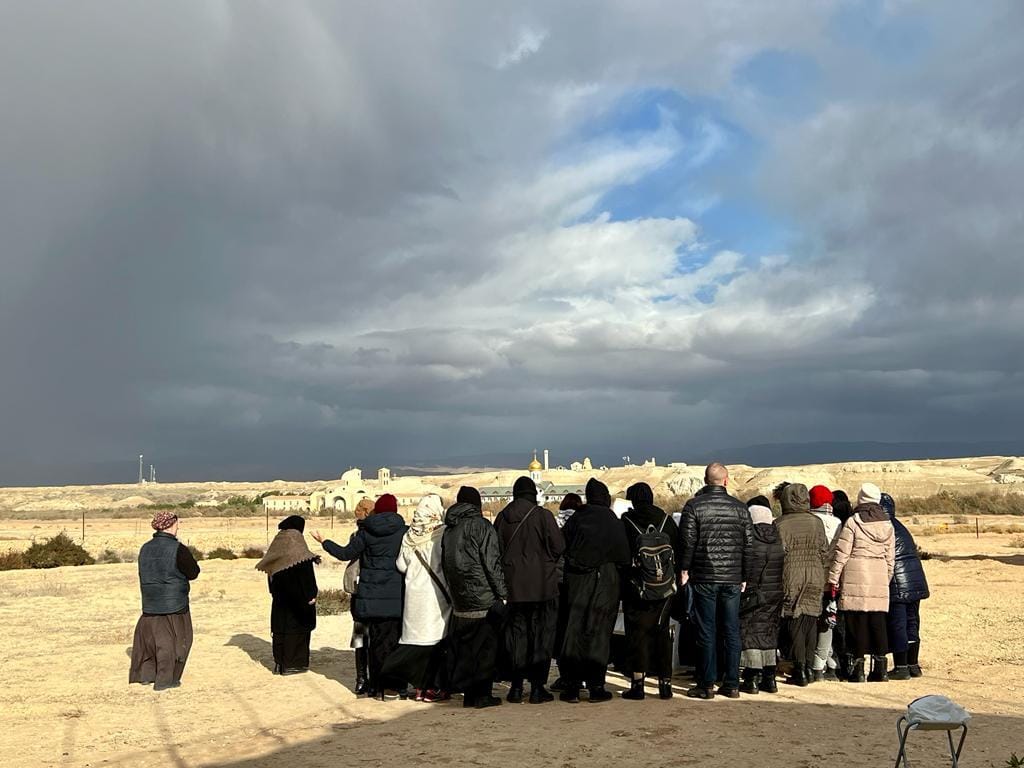In the evening of the day when St. Basil of Ostrog is celebrated every year a procession goes through Niksic, a town which is close to the Ostrog monastery. Special attention deserves that the population of Niksic is around 60 thousand people and almost the whole city participates in the procession. In the short video below are included views from above the procession on 13th March, 2024.
Category Archives: Church Holiday
The Three Births of Christ
St. Nikodemos the Hagiorite says that Christ in His human nature had three births: the first from the Virgin Mary, the second by baptism, and the third by resurrection. With reference to these three births, He was called the first-born because, in the first, He is first-born among many brothers; in the second, He was called first-born of the new creation; and in the third, first born of the dead. If we are attentive, we will discover that forty days after these births, after each of these three happenings of the Lord, there followed an important event. Forty days after His birth, He was brought to the Temple and we have the Feast of the Presentation. Forty days after His baptism in the Jordan River, He conquered the devil in those three temptations in the desert. And forty days after His resurrection, He ascended into heaven and offered to His Father the first-fruits of our own nature.
Metropolitan Hierotheos of Nafpaktos
Matushka, the Light of the Risen Christ is seen only from the Cross
Before the church at the Holy Resurrection-Novodevichy Monastery was returned, we would go see Fr. Nikolai Guryanov on the island of Talabsk. The monastery churches were still in a state of desecration, and there were even latrines there, and some machine tools were installed. We would sometimes take pictures of this disgrace to show Batiushka.
One day he said: “What a beautiful monastery! It’s your monastery! Matushka, stand by it.” And he began to sing the hymn: “Before Thy Cross, we bow down in worship, O Master, and Thy holy Resurrection we glorify.”
We thought then: Here’s the Elder praying to the Cross of Christ, and the monastery is on its own Golgotha, ruined… Could such fulfilled hope really have quietly made its way into him in some miraculous manner? When would we glorify the Resurrection? It is the Monastery of the Resurrection…
Continue readingSermon at Pentecost (Metropolitan Paul of Aleppo)
In order to experience Christ’s Ascension
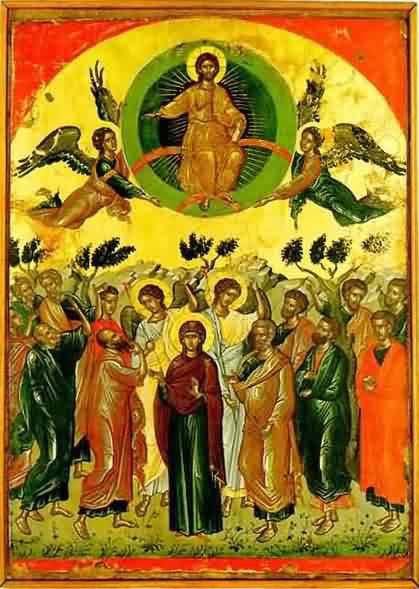
Blessed feast of the Ascension of Christ!
In order to experience Christ’s Ascension and comprehend its mystery as far as possible, we must keep the life-giving commandments, acquire the deifying virtues, especially humility and love, so that we can endure every tribulation and temptation which comes by reason of our being Christians, but even to have the desire for martyrdom for the glory of Christ’s name.
St. Nicodemus of the Holy Mountain
Source: Holy Monastery of Virgin Mary the Consolatory, Quebec
Thousands celebrate feast of St. Basil of Ostrog in the pouring rain
Thousands of faithful Orthodox Christians braved inclement weather this morning to celebrate the feast of St. Basil of Ostrog, one of the most beloved saints of the Serbian Orthodox Church.
Continue readingThe Annunciation
When the All-Holy Virgin completed the fourteenth year after her birth and was entering her fifteenth year, after having spent eleven years of living and serving in the Temple of Jerusalem, the priests informed her that, according to the Law, she could not remain in the Temple but was required to be betrothed and enter into marriage. What a great surprise to the priests was the answer of the All-Holy Virgin that she had dedicated her life to God and that she desired to remain a Virgin until death, not wanting to enter into marriage with anyone! Then, according to Divine Providence, Zacharias, the high priest and father of the Forerunner, under the inspiration of God, and in agreement with the other priests, gathered twelve unwed men from the Tribe of David to betroth the Virgin Mary to one of them to preserve her virginity and to care for her. She was betrothed to Joseph of Nazareth who was her kinsman. In the house of Joseph, the All-Holy Virgin continued to live as she did in the Temple of Solomon, occupying her time in the reading of Sacred Scripture, in prayer, in Godly-thoughts, in fasting and in handiwork.
Continue readingThe Meeting of our Lord in the Temple
Speaking about the spread and celebration of Christmas, St. John Chrysostom says: “Magnificent and noble trees when planted in the ground shortly attain great heights and become heavily laden with fruit; so it is with this day.” So it is with the day of the Meeting of our Lord in the Temple. In the beginning this day was discussed among Christians but the solemn celebration began from the period of the great Emperor Justinian. During the reign of this emperor, a great pestilence afflicted the people in Constantinople and vicinity so that about five-thousand or more people died daily. At the same time a terrible earthquake occurred in Antioch. Seeing the weakness of man’s ability to prevent these misfortunes the emperor, in consultation with the patriarch, ordered a period of fast and prayer throughout the entire empire. And, on the day of the Meeting [The Presentation] itself, arranged great processions throughout the towns and villages that the Lord might show compassion on His people. And truly, the Lord did show compassion; for the epidemic and earthquake ceased at once. This occurred in the year 544 A.D. Following this and from that time one, the Feast of the Presentation [Meeting] began to be celebrated as a major feast of the Lord. The tree, in time, grew and began to bring forth-abundant fruit.
Prologue of Ohrid, 2 February
Saint Sava, Archbishop of the Serbs
Sava was born in 1169 A.D. He was the son of Stephen [Stefan] Nemanja the Grand Zupan of the Serbs. As a young man, Sava yearned for the spiritual life for which he fled to the Holy Mountain [Mt. Athos] where he was tonsured a monk and with rare zeal lived according to the ascetical rule. Stefan Nemanja followed the example of his son and came to the Holy Mountain where he was tonsured a monk and died as Simeon, the monk. Continue reading
About Holy Water
On Theophany, that is, the Day of the Lord’s Baptism, every year a great miracle is performed. The Holy Spirit, coming down upon the water, changes its natural properties. It becomes incorrupt, that is it does not spoil, remains transparent and fresh for many years, receives the grace to heal illnesses, to drive away demons and every evil power, to preserve people and their dwellings from every danger, to sanctify various objects whether for church or home use. Therefore Orthodox Christians with reverence drink Holy Water – a great Agiasma (holy thing), as the Greeks call it.
One should always have at home enough Theophany water so that it will last the whole year, and make use of it at every need; in cases of illness, leaving on a journey, whenever one is upset, students when going to examinations. They do well who daily, before eating any kind of food, drink a little Holy Water. It strengthens the powers of our soul – if it is done, of course, with prayer and reverence, and one does not merely expect from it a mechanical result.
Every priest should take care to bless a sufficient quantity of water for his church, so that it will be on hand for the course of the whole year for every need and to be given out to those who ask for it; and parishioners should provide for themselves at Theophany with Holy Water for the whole year and even so that it can be kept for future years.
St. John of Shanghai
Photos: Miracle on Theophany, Holy Land, 2022


